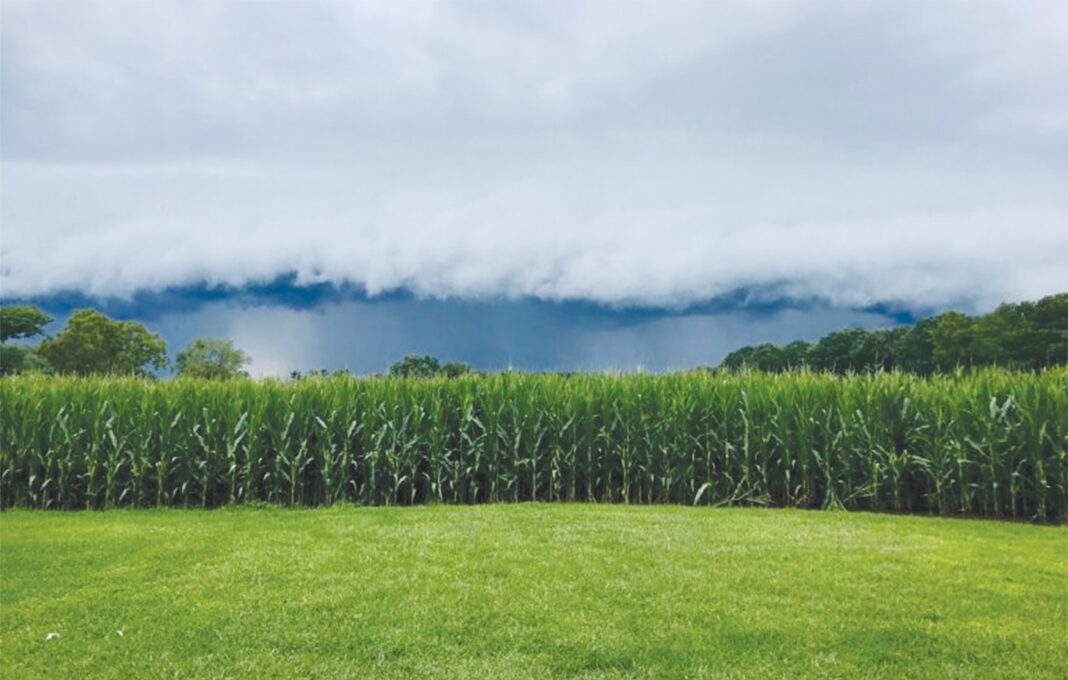By ‘Majirata Latela
Many Basotho who depend on subsistence farming continue to believe in the use of indigenous knowledge to adapt to climate change and optimize harvests.
According to the International Panel on Climate Change (IPCC), indigenous knowledge is an invaluable basis for developing adaptation and natural resource management strategies in response to environmental and other forms of change.
The IPCC reaffirmed in 2010 that indigenous or traditional knowledge may prove useful for understanding the potential of certain adaptation strategies that are cost-effective, participatory and sustainable.
Climate change is a change in global or regional climate patterns, in particular a change apparent from the mid to late 20th century onwards and attributed largely to the increased levels of atmospheric carbon dioxide produced by use of fossil fuels.
According to the United Nations Development Programme (UNDP), Lesotho is experiencing a change in temperature and precipitation patterns, towards dryer and hotter conditions.
In addition, the intensity and frequency of extreme events such as floods and drought are expected to increase, especially in the western and northern lowlands.
In the light of this, humanitarian information portal, Reliefweb, in March this year estimated that climate change had decreased the number of farming households in Lesotho that were self-sufficient by 50 percent. It decreased household purchasing power by 37 percent.
It also notes that climate change exacerbated an already vulnerable food situation of the country. Agriculture production has been declining for years due to soil erosion, poor land-use practices and decreasing soil fertility. Hence, climate change may push Lesotho’s already precarious food security over the edge and make it unsustainable during drought years.
theReporter recently spoke to a Quthing subsistence farmer who revealed how he has managed to consistently get good harvests despite the severe droughts and floods experienced in the past years.
At a time when fields should have been at least tilled in preparation for summer cropping, many fields continue to lie fallow in Quthing, one of the three districts worst hit by drought and land degradation. The other districts are Mafeteng and Mohale’s Hoek.
The farmer, John Hlalekaya, is convinced that Basotho believe – perhaps too much – in western farming methods, in the process abandoning age old indigenous approaches.
“Basotho rely on too much on the western ways of farming even though they know that our forefathers used to get good harvests from their fields using the knowledge they had.
“I for one learned farming from my father. He is the one who introduced me to farming. He used to plough his fields, get a good harvest and share it with some community members who struggled to put food on the table. Every year, he made a point that he would share the harvest with poor people.
“I then decided to follow on his farming tactics when he passed on. I now make it a point to get a good harvest so that I could sell some while also sharing with the poor,” Hlalekaya explained.
He said he developed a worm poison by using medicinal plants that are locally available. The product was tested on maize fields.
“I remember, we mixed lekhala la noka (quiver tree or aloe dichotoma) and sehalahala sa matlaka (eriocephalus) to make worm poison or pesticide. We succeeded because when we tested the mixture on the worms it killed them. We thereafter sprayed the maize fields with the substance.
“Unfortunately the maize got burned a little. We believe it was because we did not put in the right doses. If we knew the right amounts to put in the mixture I could still be using the mixture. Now we just need people who can make the mixture with the right measurements so that we could continue using it to kill worms in the fields. That will help us to stop buying this expensive western worm poison,” he suggested.
Not only did he learn about the mixture, Hlalekaya has also learned to use soot so that maize and sorghum could not have smut. He still uses the trick to protect the crops from harm.
“We take the soot and mix it with water, dip in the maize or sorghum over the night prior to spraying it on the fields. Since then I have never had crops with smut.
“Rather than buying the maize or sorghum seedlings, after harvesting, I leave some of the harvest for the next planting season. I have never been disappointed with the trick ever. I want to advise Basotho to continue using their own ways of farming as they still work. We should not always rely on the western ways.
He also indicated that Basotho have so much focused on the teachings that climate has changed significantly. But, he added, the moon that God has created has not changed.
“I agree that that there are changes in weather patterns but that shouldn’t be our excuse not to go to the fields and get good harvest. People look at the calendar to start ploughing their fields instead of studying the moon.
“In August there is a little rain that falls. During that time, farmers should start ploughing their fields and planting seeds. In August every year, I till the soil to protect it from being dry. This also protects the soil from heavy winds.
“When I have done that, I know that even if we may have a dry spell there will still be some moisture preserved. The seeds will germinate in that condition,” he hinted while looking at the nearby fields.
Hlalekaya suggested that nature is the one that controls all the cycles of farming, not changes in the weather patterns. He looked up at the sky and said even though it is still October the moon that has come out is that of November, This, according to him, means farmers who are influenced by the calendar are likely to plough late and face poor harvest.
Lesotho Meteorology Services (LMS) weather forecaster, Rammolenyane Lethaha, explained that according to the analysis that LMS conducted on the weather forecast in 2018, Lesotho’s moisture in winter (May to September) comes as a result of snow in the highlands and little rains in the lowlands.
According to an LMS study, the country experiences good rains during the period December to February even although the rains start in October to March. According to the study even if it may rain during the winter season, the rains are minimal.
“Even historically we have learned that a significant amount of rain only comes between the months mentioned above. We have also learned that when the Basotho calendar starts in August there is not sufficient moisture for ploughing.
“In the rural areas the moisture is a result of snow and not necessarily from the rains. Good rains only start in October and becomes more heavy in December to March in a year.
“In the rural areas where the snow falls, farmers there start ploughing their fields in August because they rely on the moisture from the winter snow. They start in that month because they have also realised that in March in the highlands temperatures start to decrease and that would mean late plants will be caught up by the cold before they are ready for harvesting,” Lethaha showed.
He said, climatologically, the LMS has realized is that “there is no significant change in Lesotho’s rain patterns, adding that temperatures are increasing worldwide. He observed that Lesotho’s rain patterns change every year.
He said due to increasing temperatures, the moisture from the rains or snow evaporates quickly with the help of the wind during autumn, compared to years when “temperatures were not as hot as they are now and the moisture only dried due to the heavy wind.”
Lethaha suggested: “Climatologically, there is no significant change in climate but I do advise people even if they use their forefathers’ knowledge to also listen to the weather forecasts so that they know very well what to expect every season or every year.
“Maybe if people make use of the expression ‘climate variables’, not ‘climate change’ because as for the rains, they only vary on a yearly basis. Lesotho still receives rain every year but what differs is when the rains come and whether we will have enough dams to capture the rains in dry seasons.
“In 2015, we experienced El-Nino. We received very little amount of rain but in 2016 there was enough rain but people did not realise that because we were still recovering from the previous year’s conditions. Due to the effects experienced in 2015, we only started recovering in 2020.
“This year we are still under the influence of La-Nina. We will still receive a very good significant amount of rains. But it may also happen that next year we experience El-Nino. We will not feel that much of an impact in sectors other than in agriculture. This sector relies too much on the moisture available at the time,” he indicated.
According to National University of Lesotho (NUL) agri-business economist, Dr Montoeli Rantlo, Basotho’s indigenous knowledge is highly important and very dependable. He said even if there are western ways and products to be used it is still important to use indigenous plants as pesticides and fertilisers because they are not as harmful to the soil as the synthetic products.
However, he said indigenous knowledge works very well for people who do farming for consumption not where people farm mainly for commercial purposes.









